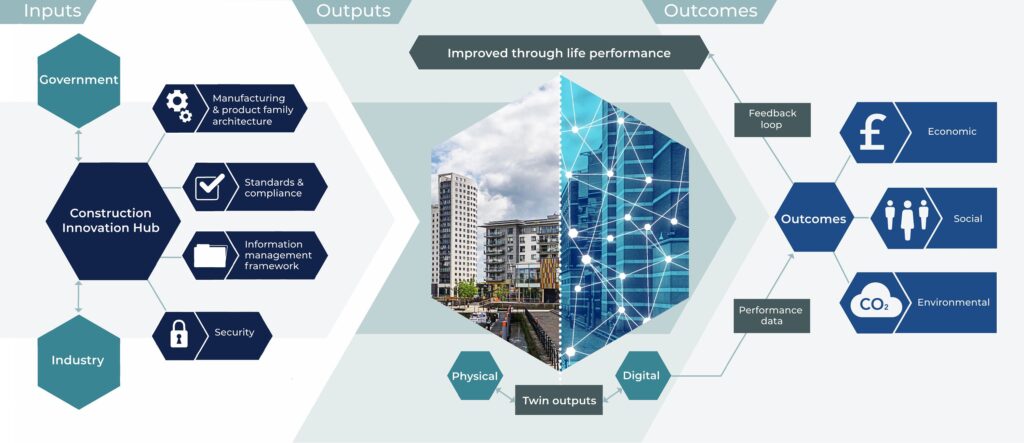Construction Innovation Hub is a New Catalyst to Transform Construction
As we all know, the Construction sector is fragmented and has been mired in a transactional, low-margin cycle for a number of years. As a result, productivity growth, investment in innovation and skills development lag other sectors of the economy.
We simply can’t afford for that to be the case any longer. Construction underpins our economy and society. It builds the homes we live in, the schools and hospitals we rely on, and the offices, factories, and transport and energy infrastructure that keep the wheels of industry turning.
That is why the Government and the Construction Leadership Council (CLC) worked to deliver the Construction Sector Deal which aims to transform the industry’s performance through a focus on digital, manufacturing and whole life performance. Central to this vision is the £72m Construction Innovation Hub.
The Hub will play a central role in developing the ‘rules’ for new products, platforms and solutions that embed best practice for data management and advanced digital and manufacturing – buildings on the learnings from other sectors of the economy such as automotive and aerospace.
We will work with the Construction Leadership Council and other industry leaders as well as product suppliers, designers and contractors to develop solutions that can be used across projects and sectors.
And the benefits are clear:
- Manufacturing can support significant reductions in the volumes of waste sent to landfill;
- Build quality will improve, with fewer defects and rework;
- Safety on site will improve, with fewer interfaces and activities taking place outside a controlled environment.
The potential for this to be transformational to the sector is enormous. It will unlock new and innovative businesses to bring products and solutions to market, creating long-term and sustainable jobs. It can help to improve the delivery of the UK’s ambitious infrastructure plans, enabling government to become a more innovative client, and for this approach to scale to projects across the whole sector.
But it will take more than just new products and processes to deliver sustainable, positive change in the Construction Sector – clients, and in particular government, must play their part.
We must start to value beyond just the initial cost and start looking at the whole life performance and how investment in the built environment can better support delivery of wider social, economic and environmental outcomes.
Hence, the way clients procure, contract, pay and incentivise must change – and the business models of industry must adapt to unlock the latent productivity and innovation that sits across our suppliers.
The CLC are already making great progress towards this target, through Ann Bentley’s work on Procuring for Value. The IPA’s recent consultation on DfMA is also a very welcome step.
I believe passionately that seeking better outcomes delivers better value. But for businesses to invest in the skills, solutions, products and methods that deliver these outcomes, then government and clients must get in the habit of both asking for and valuing them. Only then will construction be able to transform into a more sustainable, profitable and attractive industry with an improved impact on society.
The Construction innovation Hub team will also be at Futurebuild between 5-7 March talking about all of this and more.
Keith Waller is the programme director for the Construction Innovation Hub.
If you’d like to learn more about the Construction Innovation Hub and sign up for updates, you can register your interest through our website .






